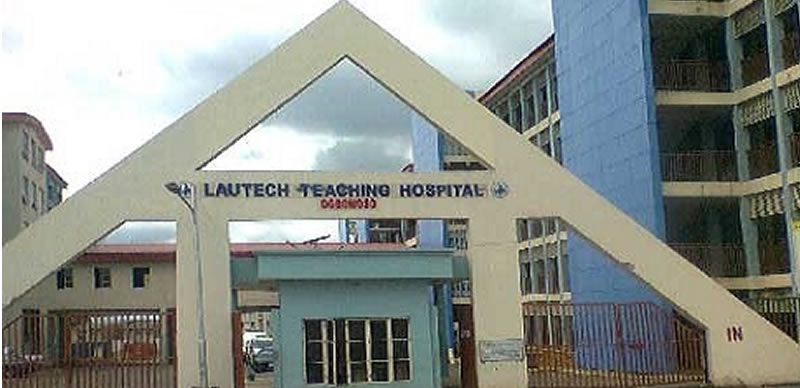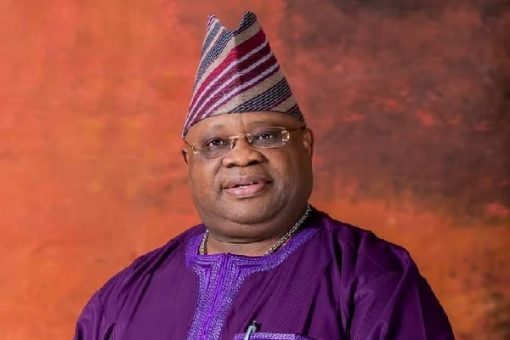
Chaos in Ogbomoso: LAUTECH Resident Doctors Ground Operations with Indefinite Strike Over Broken Promises

In a dramatic turn of events that has thrown the Ladoke Akintola University of Technology (LAUTECH) Teaching Hospital into turmoil, resident doctors at the institution in Ogbomoso, Oyo State, have downed tools indefinitely, plunging the hospital’s operations into near paralysis. The indefinite strike action, which commenced earlier this week, has already begun to take its toll on patients, staff morale, and the reputation of the once-thriving medical institution. At the heart of the crisis lies a long list of unresolved grievances that the doctors claim the hospital management and Oyo State Government have blatantly ignored despite repeated appeals and negotiations.
The announcement of the strike was made by the leadership of the Association of Resident Doctors (ARD) at LAUTECH Teaching Hospital, who accused both the management and the state authorities of persistent neglect and failure to fulfill previous agreements. Among the major grievances listed were non-payment of allowances, poor working conditions, inadequate medical supplies, dilapidated infrastructure, and the alarming shortage of essential equipment required for effective patient care. For many of the striking doctors, the strike was not just a protest, but a desperate cry for the bare minimum to perform their duties.
Scenes of confusion and distress were witnessed at the hospital on Monday morning as patients—some in critical condition—arrived only to discover that consultations, surgeries, and outpatient services had all been halted. Family members of inpatients frantically sought alternatives, while emergency cases were turned away or redirected to neighboring facilities with limited capacity. For many residents of Ogbomoso and surrounding communities, the LAUTECH Teaching Hospital is a major referral center, and the current disruption has sparked fears of an impending healthcare collapse.
Speaking to reporters on the hospital premises, Dr. Samuel Adebayo, one of the resident doctors, lamented the poor state of affairs, saying, “We cannot continue to work under these inhumane conditions. Every day we show up and give our best, but our welfare is ignored. We have families. We deserve dignity. We are not machines.” Another doctor who chose to remain anonymous added, “The government keeps making promises they never intend to keep. We’ve written letters, held meetings, and even made compromises, but nothing has changed. We have reached our breaking point.”
According to the ARD leadership, one of the most contentious issues is the non-payment of the 2023 medical residency training fund (MRTF), which is meant to cover the cost of specialist training for resident doctors. Despite assurances from the state government that the funds would be released, no concrete steps have been taken to actualize the payment. The doctors also allege that salaries have been inconsistent, and in some cases, new medical staff have not been paid for months. Such delays, they say, have led to untold hardship, low morale, and brain drain, with many young doctors now seeking opportunities outside the country.
The strike, while not entirely unexpected, comes at a critical time when the country’s healthcare sector is already stretched thin. Public hospitals in Nigeria have long suffered from systemic neglect, inadequate funding, and a high turnover of skilled professionals who often migrate to countries where their skills and welfare are better appreciated. LAUTECH’s resident doctors say they are simply tired of enduring empty promises in a system that expects so much and gives so little.
As the news of the strike spread across Ogbomoso, patients and families expressed deep frustration. Mrs. Funke Oladele, whose husband was scheduled for surgery this week, said, “We don’t even know where to go now. We are stranded. This hospital is supposed to be a lifeline, but now we are on our own.” Another woman, who brought her asthmatic daughter for treatment, burst into tears after being told to seek help elsewhere. “Where do they want us to go? We don’t have money for private hospitals. This is wickedness,” she cried.
Efforts by journalists to get a response from the hospital management proved futile as key officials reportedly declined to comment on the matter. However, an aide to the Chief Medical Director, who spoke off record, admitted that while the doctors’ concerns are valid, the management has been “overwhelmed by funding constraints” and is working with the state government to find a resolution. Meanwhile, there has been no official statement from the Oyo State Government at the time of this report, despite growing pressure from civil society groups and healthcare advocates for immediate intervention.
The Nigerian Medical Association (NMA), South-West Zone, has also waded into the crisis, urging both parties to return to the negotiating table. In a brief statement released Tuesday, the NMA warned that continued government neglect of healthcare workers could trigger a domino effect across other teaching hospitals in the region. “We cannot afford a total collapse of our healthcare infrastructure. The state must act now, not tomorrow,” the NMA declared.
Meanwhile, the doctors remain firm in their stance, insisting that until all their demands are met, they will not return to work. They maintain that their decision is not born out of selfishness but out of a deep desire for a functional and fair healthcare system where doctors are not made to suffer in silence. “This is not just about salaries,” said Dr. Adebayo again. “It’s about respect. It’s about a system that values life and those who work to save lives. Until we get that, the strike continues.”
As the impasse drags on, the fate of hundreds of patients hangs in the balance. The once-bustling wards and clinics at LAUTECH Teaching Hospital now echo with silence, a symbol of a system in distress. For the people of Ogbomoso, this is more than just a strike—it is a wake-up call, a confrontation with the hard truth that healthcare in Nigeria remains dangerously fragile.
Unless urgent steps are taken by the Oyo State Government and hospital authorities to resolve the crisis, the strike may not only escalate into a broader health emergency but could also set a troubling precedent for other institutions across the country. The lives at stake are real, and so is the desperation in the hearts of those who took the Hippocratic oath to heal. The world is watching, but for now, all eyes are on Ogbomoso—and on a hospital hanging by a thread.


